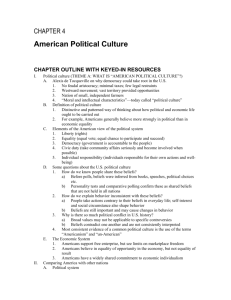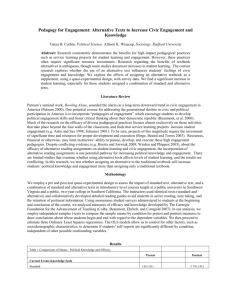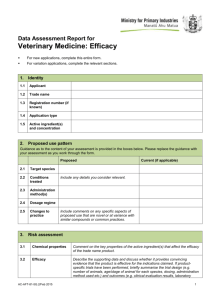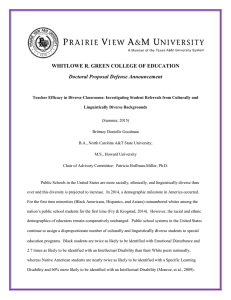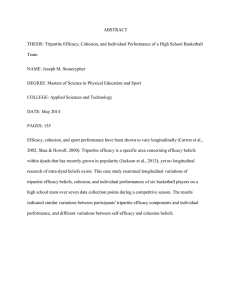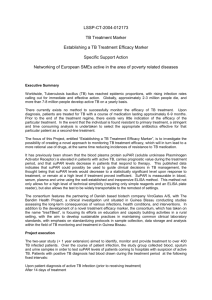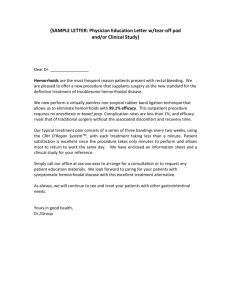Ch 4 Practice Free Response Questions
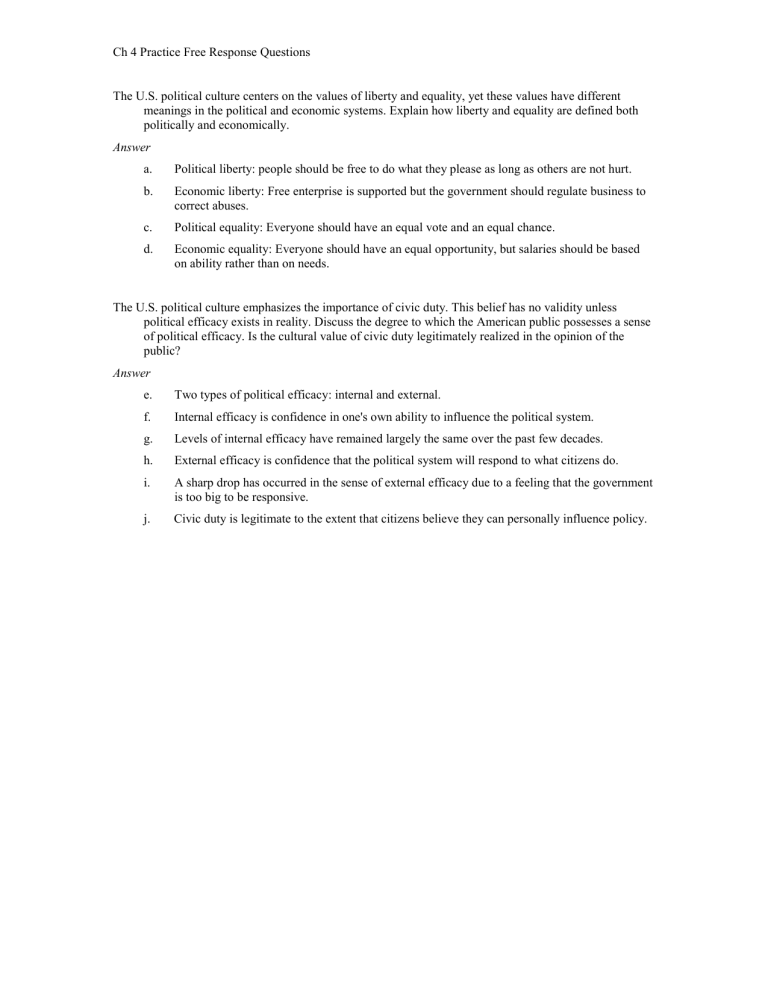
Ch 4 Practice Free Response Questions
The U.S. political culture centers on the values of liberty and equality, yet these values have different meanings in the political and economic systems. Explain how liberty and equality are defined both politically and economically.
Answer a. Political liberty: people should be free to do what they please as long as others are not hurt. b. Economic liberty: Free enterprise is supported but the government should regulate business to correct abuses. c. Political equality: Everyone should have an equal vote and an equal chance. d. Economic equality: Everyone should have an equal opportunity, but salaries should be based on ability rather than on needs.
The U.S. political culture emphasizes the importance of civic duty. This belief has no validity unless political efficacy exists in reality. Discuss the degree to which the American public possesses a sense of political efficacy. Is the cultural value of civic duty legitimately realized in the opinion of the public?
Answer e. Two types of political efficacy: internal and external. f. Internal efficacy is confidence in one's own ability to influence the political system. g. Levels of internal efficacy have remained largely the same over the past few decades. h. External efficacy is confidence that the political system will respond to what citizens do. i. A sharp drop has occurred in the sense of external efficacy due to a feeling that the government is too big to be responsive. j. Civic duty is legitimate to the extent that citizens believe they can personally influence policy.

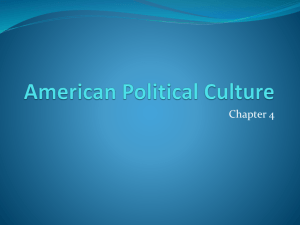
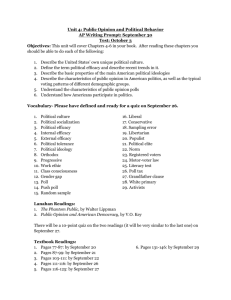
![Quality assurance in diagnostic radiology [Article in German] Hodler](http://s3.studylib.net/store/data/005827956_1-c129ff60612d01b6464fc1bb8f2734f1-300x300.png)
